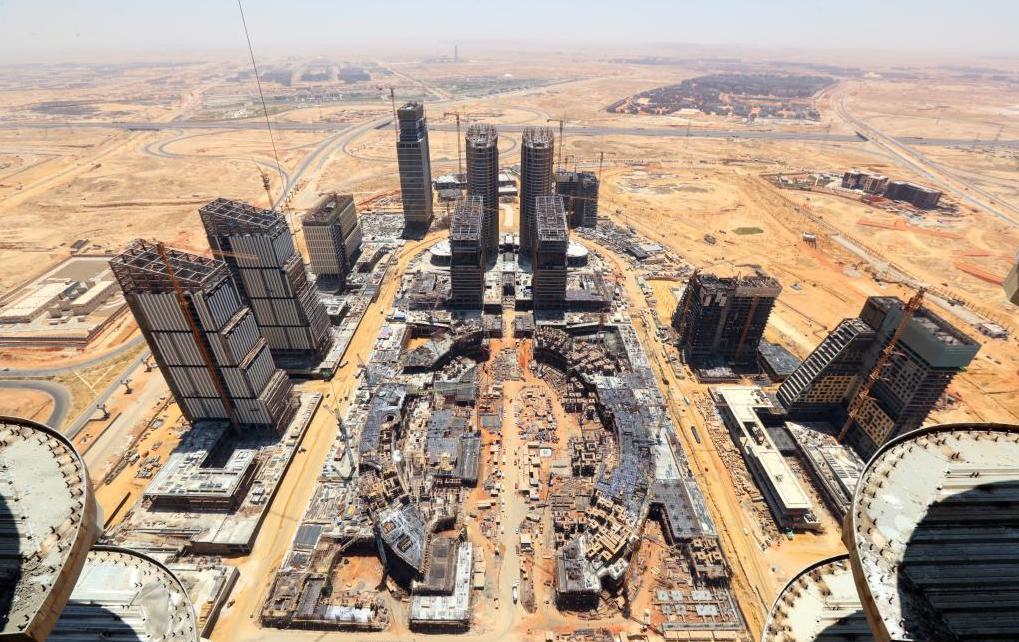Since the Indian government announced their 100 Smart Cities Mission in 2015, industry media channels have been flooded with news on the latest city selected and the next technology to be implemented. Other populous developing countries, like Egypt and Indonesia, are now following India’s smart cities policy with ambitious projects at their own scale, each striving for advanced urban development when much of their population lacks basic services. Smart cities have the capacity to improve basic services and develop advanced applications at the same time, while fostering equality and economic development but, as the first Indian cities reach their five-year smart renovation, many reports find more failures than successes from the ambitious initiative.
As much as 49% of 5,196 projects for which work orders were issued across the 100 smart cities remain unfinished, as per government data, while in the 33 cities which have ended their five-year duration, 42% of projects are incomplete, according to Business Standard analysis. There have been huge funding roadblocks, institutional issues with public-private partnerships (PPPs), mass skills shortages, within a wide range of highly publicized failures. Furthermore, the entire mission has been accused of limiting citizen participation and even widening the existing stark social and economic inequalities in Indian urban society.
“Although these initiatives are often promoted as politically neutral and beneficial for all, they’re being increasingly criticized for catering to the priorities of affluent citizens and private developers while displacing low-income people from living spaces and livelihoods to make way for the smart “world-class” city,” writes Josie Wittmer for The Conversation. “But smart technologies are not socially and politically neutral. Rather, expert-led technological best practices can intensify gendered, casted, racialized and classed inequalities, and threaten the livelihoods of women who are informal workers in cities across India and the Global South.”
The central Indian city of Bhopal was selected under the Smart Cities mission and was promised a range of new smart services. This included smart surveillance lampposts equipped with air quality sensors and digital information boards, underground refuse systems, even street vacuuming robots to tackle the city’s dust issues. However, reports suggest the incomplete refuse system is poorly managed and street cleaning improvements have been focused on more affluent urban areas. The initial work on the lampposts led to the removal of many trees, which led to a steady rise in air pollution and, ironically, the citizens could monitor the rising pollution in real-time on the digital displays of the new smart lampposts.
“Technology can upgrade essential functions and adapt to each city’s unique challenges but the real challenge lies in having these solutions benefit a city’s people according to their needs. Improving water pipelines only at the heart of the city, for example, doesn’t benefit people who live nearer to the outskirts and who aren’t as connected,” write Gwyneth Cheng in an article for Kontinentalist. “For a city to be truly smart, technology should be applied in a manner that benefits the population in an equitable manner —this means either that technology benefits everyone in a city or that different groups of people get suitable help depending on their situations.”

With over 100 million people and one of the largest population growth rates in the world, Egypt has been going through a construction boom for the past decade with a focus on greenfield smart city projects. New district-sized gated communities now bring landscaped gardens and golf courses into the deserts east and west of the nation’s current capital, Cairo, while entirely new cities arise around the country —including a new capital city boasting the Iconic Tower, Africa’s new tallest building, and a wide range of smart city infrastructure, services, and security technology.
Situated 45km southeast of Cairo, construction of Egypt’s New Administrative Capital has been underway for the past five years, with $20bn of investments pumped into the 16,800ha phase one. This greenfield smart city is 51% owned by the military government, which is also the largest construction firm, but local and foreign firms have found big opportunities including the China State Construction Engineering Corporation developing 20 tall towers. The first 50,000 relocated government workers were moved in this year and, when all three phases of the smart city are complete, the government expects over 6.5 million people to live over the 70,000ha (about the size of Singapore) but accusations of inequality also plague Egypt’s smart city dreams.
“The real-estate market primarily targets the wealthiest 10% of the population, and will continue to do so with the new smart cities. Until coronavirus, 80% of wealth in Egypt was concentrated in real estate,” says Salma Hussein, an Egyptian economic researcher.she tells The Africa Report. “There are around 20 million unoccupied apartments. This means the wealth is pretty much concentrated in the hands of a small number of people and with the expansion comes more inequality of wealth. Many people from the wealthiest 10% deem real estate as a safe haven, and therefore have the tendency to keep purchasing more and more amid a very large supply customized for them.”
Ratings agency Fitch predicts that Egypt’s construction sector will grow by 10% year-on-year in 2021 and continue at nearly that pace for the rest of the decade, driven by their smart city vision. The Indian construction industry, meanwhile, recorded growth of 17.1% in 2021 and is also expected to grow at around 10% for the coming years as India strives to complete its 100 Smart Cities. While the smart city may be the political spin on urban development, the economic impact of such growth is real, and so is the social impact of developing smart cities without a clear plan to improve, not worsen, inequality issues. Unless governments address the growing inequality in smart development, it could ultimately be their projects’ downfall.
“The problem is that in many contexts, a push for smarter cities can heighten the already-existing inequity present in a place if structural urban issues are not addressed. For nations that make up the so-called "global south", achieving smart-city status while addressing the pressing needs of the local population is a much more difficult matter, which ends up perpetuating already existing imbalances in a society,” writes Matthew Maganga for Arch Daily. “Larger scale smart city initiatives, however, need to cater to the socio-economic needs of a city first, or at the very least, simultaneously, in order to not maintain the inequitable status quo of urban settlements.”



